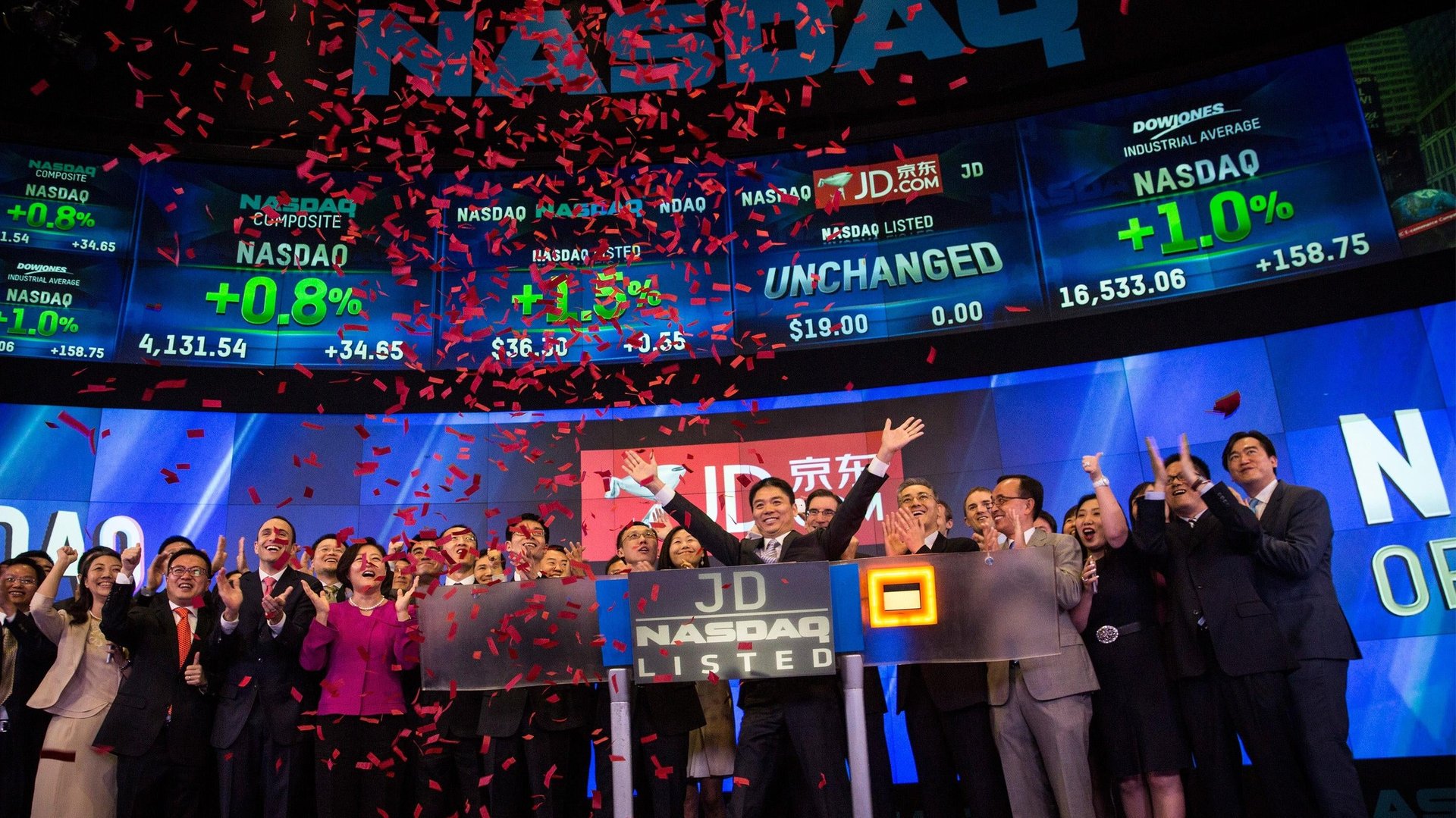The US accounting watchdog’s milestone ends uncertainty over Chinese firms’ stock market delisting
The US got access to inspect and investigate China and Hong Kong-based registered

Hundreds of Chinese companies have narrowly escaped the risk of being delisted from the US stock exchange.
Suggested Reading
In a milestone ending almost two decades of the two countries jousting over auditing processes, the US accounting watchdog has finally secured complete access to inspect and investigate registered public accounting firms headquartered in mainland China and Hong Kong yesterday (Dec. 15).
Related Content
Without access to these firms’ complete bookkeeping records, the US could have levied trading bans on and delisted these firms by early 2024, as per the Holding Foreign Companies Accountable Act (HFCAA), which became law on Dec. 18, 2020. The HFCAA requires the Securities and Exchange Commission (SEC) to identify public companies that the Public Company Accounting Oversight Board (PCAOB) is unable to inspect or investigate completely because they are being audited by an authority in the foreign jurisdiction.
In August, China struck a deal allowing US auditors to inspect the records of US-listed Chinese companies. The following month, PCAOB personnel were getting down to business at the KPMG and PwC Hong Kong offices. So far, the potential deficiencies identified by the staff are akin to the types and number of findings the PCAOB has encountered in other first-time inspections around the world.
“Congress sent a clear message with that legislation that access to US capital markets is a privilege and not a right, and China received that message loud and clear,” PCAOB chair Erica Y Williams said.
Chinese firms in the US stock market, by the digits
262: Chinese companies listed on the US stock exchange as of Sept. 30
$775 billion: Market cap of US-listed Chinese firms, down from $1.3 trillion in June.
5: Number of China’s largest state-owned companies—China Life Insurance Company, PetroChina Company Limited, China Petroleum & Chemical Corporation, Aluminum Corporation of China Limited, and Sinopec Shanghai Petrochemical Company Limited—that delisted from the New York Stock Exchange (NYSE) as the two countries sparred over auditing standards
172: Companies the SEC has “identified” between March 30 and Dec. 13 that relied on auditors headquartered in mainland China and Hong Kong, which have been deemed to be “non-compliant” by the PCAOB, for their fiscal year 2021 annual report filings. A majority are Chinese, including e-commerce giant Alibaba and its rival JD.com, internet company Baidu, social network Weibo, retailer Miniso, video live-streaming service DouYu, and many more.
30+: PCAOB staff members who conducted on-site inspections and investigations at KPMG and PwC offices in Hong Kong, reviewing thousands of pages of documents, conducting interviews and taking testimony over a nine-week period from September to November. The team was more than double the size of a typical team for similar inspections, and they remained on the ground for about three weeks longer than the typical timeframe.
What exactly did the PCAOB staff do at KPMG and PwC’s Hong Kong offices?
Without any interference from the companies or Chinese authorities, PCAOB staff was able to...
🫵 select any issuer audits for inspection or investigation
❓interview or take testimony from all related personnel of the audit firms
🔎 see complete audit work papers without any redactions
The nonprofit corporation created by the Sarbanes–Oxley Act of 2002, meant to protect investors from fraudulent financial reporting, can transfer relevant information to the Securities and Exchanges Commission (SEC).
Is delisting Chinese companies off the table? Here’s what the PCAOB chair says
“Should PRC authorities obstruct or otherwise fail to facilitate the PCAOB’s access – in any way and at any point in the future – the Board will act immediately to consider the need to issue a new determination…Today’s announcement should not be misconstrued in any way as a clean bill of health for firms in mainland China and Hong Kong.” -PCAOB chair Erica Y Williams
PCAOB’s access is only scratching the surface of scrutinizing Chinese firms
With the recent announcement, the PCAOB has reset the clock on potential delisting, but it has not scrapped the idea entirely. If Chinese authorities don’t give PCAOB complete access for inspections and investigations for three consecutive years, the SEC would prohibit trading in the securities of issuers engaging those audit firms, according to SEC chair Gary Gensler’s Dec. 15 statement.
Moreover, “this determination addresses only the PCAOB’s ability to access audit firms for inspections and investigations, not the quality of the audits,” Gensler points out. After identifying gaps in the financial reports, PCAOB inspectors are instructing audit firms on ways to improve their quality control processes, which they’ll have to implement.
Additionally, Chinese-based companies with US capital market exposure must provide specific disclosures about the heightened operational and legal risks that they face as well as about the extent of governmental ownership in their company and any Chinese Communist Party (CCP) participation on their boards of directors.
Related stories
